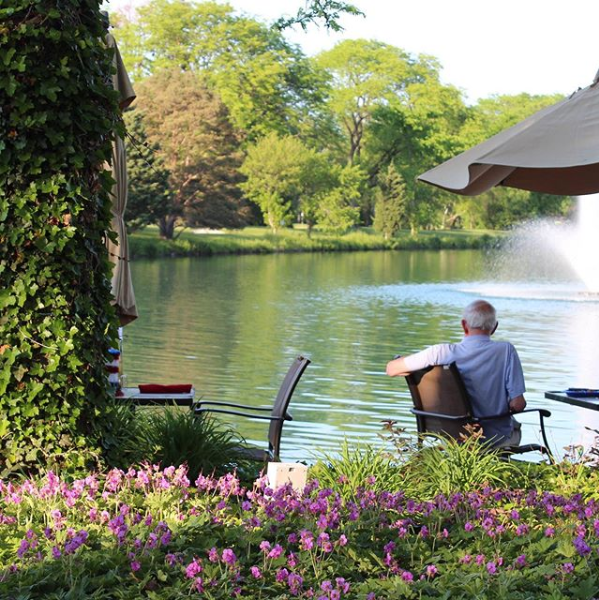The benefits of lake property ownership and the lake lifestyle are boundless.

Your cabin on the water provides you with a place to spend your summers with family and friends; a quiet fishing retreat and somewhere to enjoy the wonders of retirement.
However, did you know lake living can be considered healthy living, too?
According to a recent health-science research, living on or near the lake can boost your immune system, combat high blood pressure, and even alleviate some symptoms associated with dementia.
Nature Improves Memory Recall
According to a University of Michigan psychological study, interacting with nature can improve your short-term memory and attention span by 20%.
Study participants spent an hour walking around different areas of the university’s campus. One group walked near a botanical garden and arboretum, the other down city streets.
After their walk, the group exposed to plants and trees showed improved recall and focus while the second group showed no improvement at all.
Additional research indicates that spending time outdoors can also facilitate better overall brain function and improved mental clarity.
Individuals with dementia reported increased awareness, better short-term recall, and reduced aggression and agitation after spending time outdoors.
Imagine how significantly prolonged exposure to lake environments rich with trees, plants, and wildlife could impact memory function and concentration in residents aging into their golden years.
The Great Outdoors Relieves Hypertension

A 2018 study conducted by the University of East Anglia concluded that “greenspace exposure” reduces a person’s risk of developing type II diabetes and heart disease.
Time spent in the great outdoors was also found to lower people’s cortisol levels (a stress-associated chemical), reduce diastolic blood pressure, and improve sleep quality and duration.
One research experiment cited a “significant reduction in blood pressure in elderly patients” with hypertension after they spent seven days and seven nights in an evergreen forest.
A similar phenomenon called the “blue mind effect” also impacts stress, anxiety, and overall mental health. The phenomenon’s associated research reports that being near, in, on, and even under the water can make a person healthier and happier.
Similar to forest bathing, or the act of spending time in nature, spending time near blue spaces like the lake puts people in a mildly meditative state that promotes introspective thought, relaxation, and creativity.
Being Outside Improves Immune System Function

Greenspace and blue space exposure together can improve immune function, as well.
Psychologists who study how one’s state of mind affects his state of health report chronic stress and depression can severely damage a person’s ability to fight off germs.
Spending time outdoors and near the lake puts the body into what the University of Illinois environment and behavior researcher, Ming Kuo, calls “rest and digest mode.”
In this mode, a person feels relaxed, calm and safe, which allows the body to pump resources into the immune system.
Time spent outside also feeds the body sun-produced Vitamin D and other naturally occurring vitamins and nutrients, providing one’s immune system an extra boost.
For example, trees and other plants give off “phytoncides,” which humans take in when they breathe fresh air. These airborne chemicals protect plants from insects, bacteria and fungal diseases.
In humans, exposure to phytoncides increases white blood cells in the body that fight off tumor- and virus-infected cells.
Essentially, spending time at the lake and in the forest can help fight and possibly prevent some cancers.
Forget an “apple a day”! The saying may as well be changed to “enjoying the lake every day keeps the doctor away!”
For more lake lifestyle advice and tips, visit here.

